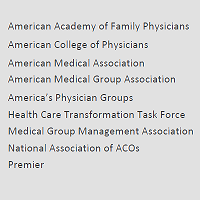 Money Rewards Participation in Advanced Alternative Payment Models
Money Rewards Participation in Advanced Alternative Payment Models
Nine organizations who represent a diverse array of healthcare providers wrote Seema Verma, administrator of the Centers for Medicare & Medicaid Services (CMS), urging the agency pay as soon as possible the 5 percent bonus for participation in Advanced Alternative Payment Models.
Congress created the bonus in the landmark 2015 law, the Medicare Access and CHIP Reauthorization Act (MACRA), as a reward for participation in risk-bearing payment models, like certain accountable care organizations (ACOs), designed to lower healthcare spending. However, CMS has yet to send the lumpsum payment for participation in 2017, the first year the incentive was available. In contrast, clinicians participating in MACRA’s Merit-based Incentive Payment System began receiving payment adjustments in January for their 2017 performance.
“The up to two-year delay between performance and payment is already significant,” the letter states. “The reason for the holdup is unclear.”
Additionally, the groups urge CMS to commit to pay these bonuses no later than June 30th in future years. More than 90,000 clinicians are owed the bonus this year, a number CMS predicts will increase in future years.
The groups are committed to ensuring the success of MACRA, which passed Congress with overwhelming bipartisan support. But for the law to realize the goal of moving away from a perverse fee-for-service system and encourage participation in value-based payment models, CMS should not force providers to wait this long to receive their reward.
“The delay in payment of the Advanced APM bonus unfairly penalizes those that have diligently prepared for MACRA implementation by making investments with the expectation of a 5 percent positive adjustment in 2019,” the letter states. “If these payments are not made soon, we fear clinicians could be dissuaded from participating in Advanced APMs in the future, or worse, be forced to make difficult budgetary choices in the short-term that could hinder patient care or inhibit their ability to succeed in APMs, such as letting go of additional staff hired to support enhanced care coordination and other essential functions.”
Please click here for a copy of the letter.
Organizations submitting the joint letter include:
American Academy of Family Physicians
American College of Physicians
American Medical Association
American Medical Group Association
America’s Physician Groups
Health Care Transformation Task Force
Medical Group Management Association
National Association of ACOs
Premier
